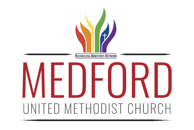
The time is coming, declares the Lord, when I will plant seeds in Israel and Judah, and both people and animals will spring up. Just as I watched over them to dig up and pull down, to overthrow, destroy, and bring harm, so I will watch over them to build and plant, declares the Lord. In those days, people will no longer say:
Sour grapes eaten by parents
leave a bitter taste in the mouths of their children.
Because everyone will die for their own sins:
whoever eats sour grapes
will have a bitter taste in their own mouths.
The time is coming, declares the Lord, when I will make a new covenant with the people of Israel and Judah. It won’t be like the covenant I made with their ancestors when I took them by the hand to lead them out of the land of Egypt. They broke that covenant with me even though I was their husband, declares the Lord. No, this is the covenant that I will make with the people of Israel after that time, declares the Lord. I will put my Instructions within them and engrave them on their hearts. I will be their God, and they will be my people. They will no longer need to teach each other to say, “Know the Lord!” because they will all know me, from the least of them to the greatest, declares the Lord; for I will forgive their wrongdoing and never again remember their sins.
Reflection
Faith isn’t something you can purchase secondhand. You can model it, demonstrate it, and lead people toward it, but ultimately it’s something each individual, in each generation, has to claim for themselves.
In the Old Testament, much is made of an old saying: “The parents have eaten sour grapes, and the children’s teeth are set on edge.” For Jews in exile in Babylon, it was a way to explain their predicament, in captivity far away from their homeland. “We’re paying for the sins of our parents,” people told each other. Can you imagine what that kind of thinking would do to the next generation’s faith? No one wants to have to pay for debts run up by a previous generation.
Again, God through Jeremiah speaks a word of promise: it doesn’t have to be like that. Our relationship with God isn’t about what our ancestors did or didn’t do. It’s not defined by what other people have told us about God – whether rabbis, priests, or pastors. As Christians, our relationship with God is direct. It’s defined by the face of Jesus, who puts our past behind us and gives us a fresh start. He carves his command to love is upon our hearts. Of course, that’s just the beginning, not the ending. To understand the law of love and live it out fully takes a lifetime of relationship with him. That’s not something anyone can hand to us. Every one of us has got to claim it for ourselves.
For Pondering & Prayer
What were some things you were taught about faith, God, or loving your neighbor that you had to unlearn in the course of growing up?
What are you actively doing to help lead others to faith – knowing that you can’t hand someone your faith, but only demonstrate, model and plant seeds?









Comments are closed.